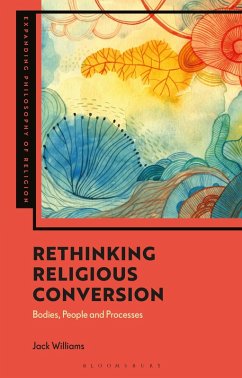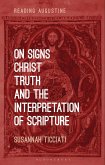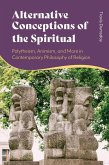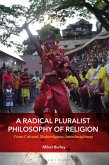Drawing on methods from religious studies, philosophy, and cognitive science, Jack Williams develops a unique and interdisciplinary approach to the study of religious conversion. This is the first major philosophical study of conversion to treat the phenomenon as a long-term process, shaped by the convert's embodiment and immersion in a linguistic, social, and ritual community.
Williams' analysis of the conversion process is rooted in a view of cognition as both embodied and affective, and is informed by the latest research in phenomenology, affect theory, neuroscience, and enactivist cognitive science. In conversation with diverse conversion narratives, he advances a theory of conversion that is not restricted to a modern, Western context but that can be applied to experiences of conversion across global history and culture.
Rethinking Religious Conversion displays an original approach to the philosophical study of diverse religious practices. By bringing together a diverse array of contemporary and historical scholarship, it revitalizes the study of conversion for both philosophy and religious studies.
Williams' analysis of the conversion process is rooted in a view of cognition as both embodied and affective, and is informed by the latest research in phenomenology, affect theory, neuroscience, and enactivist cognitive science. In conversation with diverse conversion narratives, he advances a theory of conversion that is not restricted to a modern, Western context but that can be applied to experiences of conversion across global history and culture.
Rethinking Religious Conversion displays an original approach to the philosophical study of diverse religious practices. By bringing together a diverse array of contemporary and historical scholarship, it revitalizes the study of conversion for both philosophy and religious studies.









